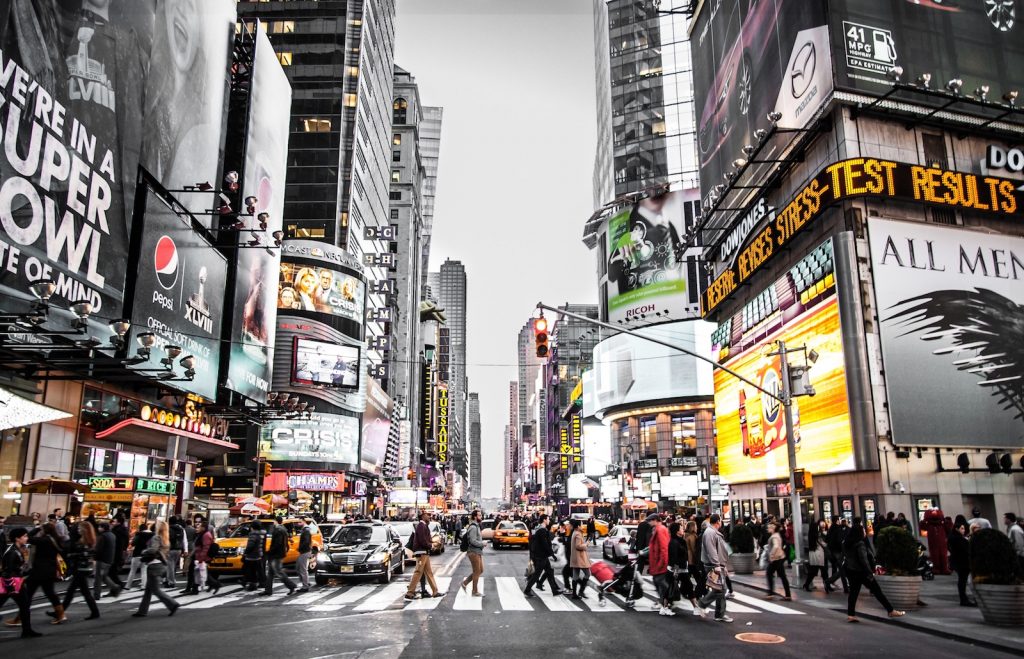
Photo by Aaron Sebastian on Unsplash
Fresh off the heels of a record-breaking 2018, the digital advertising industry is gearing up for a new year that looks sure to be its most dynamic yet. In 2019, mobile is poised to continue to drive overall growth, video will make a splash, and more brands than ever will embrace a performance-based model. With so much excitement, why wait for a mid-year roundup? Below are a few of the digital advertising trends we’re seeing in 2019.
2019 Digital Advertising Trends
1. Mobile-Heavy Budgets
In the most recent digital advertising report from the IAB and PricewaterhouseCoopers, growth was the name of the game for advertising in 2018. And the main driver of that growth? Mobile.
Across the board, mobile accounted for a larger portion of advertising revenue for every digital format that year. It also captured 63% of overall digital advertising revenues versus desktop, up from 54% in 2017.
The numbers speak for themselves here. As mobile continues to grow, it will continue to eat more and more of the revenue pie, leaving desktop with less every year. If you don’t already have a technology platform that can track and manage your marketing cross-channel, now is the time to find one.
2. Partnering for Content and Connections
In a 2015 Nielsen study, respondents rated the following as the four most trusted sources of advertising:
- people you know
- branded websites
- consumer opinions / reviews
- editorial content
At the bottom of the list? Banner ads, ads on social networks, ads served in SERPs and over the radio and in videos — really, any ad on any channel.
This general distrust of traditional advertising is why recent years have seen trends of more money going to content marketing, influencer marketing, and referral partnerships. In 2019, we expect even more budget to go to influencer marketing. We also anticipate consumers will grow weary of products being advertised with boilerplate messaging that’s clearly come from a brand or lifted from a sponsorship agreement. That’s why we’ll see more authentic, uniquely crafted messages capturing the attention — and purchasing power — of consumers in 2019.
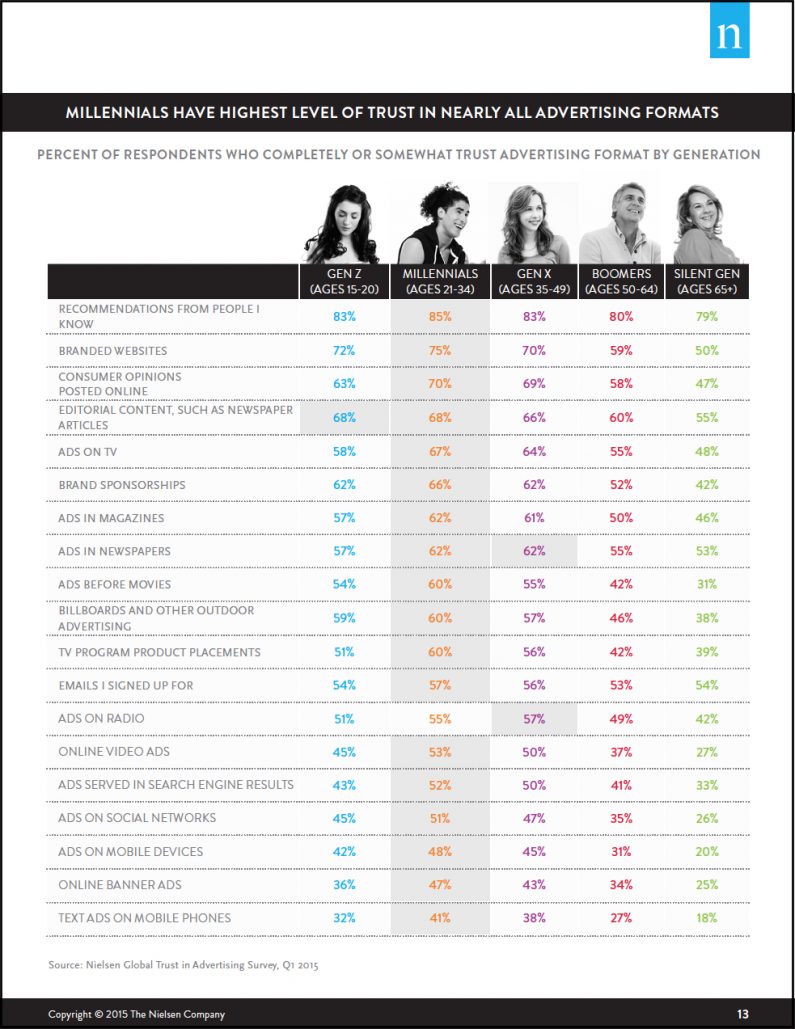
The most trusted sources of advertising across all age groups had content and human connection in common. Source: Nielson
3. Omnichannel > Multichannel
We’ve been talking for a long time about the importance of uniting the entire customer journey with your marketing and measurement efforts. Finally, we’re seeing advertisers begin to embrace that as the norm instead of the gold standard. In 2019, we see trends around omnichannel gaining traction as advertisers realize multichannel won’t cut it anymore.
But don’t just take our word for it. We like how John Bowden, Senior VP of Customer Care at Time Warner Cable, says it:
“Multichannel is an operational view – how you allow the customer to complete transactions in each channel. Omnichannel, however, is viewing the experience through the eyes of your customer, orchestrating the customer experience across all channels so that it is seamless, integrated, and consistent. ”
4. Exploring the Value of Voice
Alexa and Siri don’t always get it right, but since their introduction, they have been consistent on one front: consumer adoption. In 2018, 65% of consumers said they wouldn’t go back to life without their voice-controlled assistant, and the number of U.S.-based Alexa skills more than doubled, from around 26,000 to over 56,000. So the digital advertising trends around voice aren’t going anywhere soon. As such, expect to see companies like Amazon and Google exploring new ways they can monetize the channel in 2019.
5. More Mobile Video
Global video ad spending is growing, and at an increasingly faster pace. According to Forrester, the annual video ad spend in the U.S. will grow from $90.7 billion in 2018 to $102.8 billion in 2023. In particular, mobile video is the fastest-growing video type among consumers. This trend is driven by the increasing size of smartphone screens and the fact that video is more engaging than, say, a banner ad. In addition, watching video on the go currently takes the greatest share of time spent, so advertisers are expected to spend nearly $30 billion on mobile video advertising in 2019.
6. Automation + Artificial Intelligence
Heading into 2019, AI is less something that sounds like it belongs in the future, and more so something that advertisers are getting comfortable with being a part of their day-to-day life. We’re seeing good advertisers use AI to automate performance, measurement, and smarter marketing decisions. For example, chatbots are now responding to customers across the web and on social platforms. But we’re seeing the best advertisers pair automation with personalization to give customers an experience at the right time, right place, and right format — in a way that feels tailored to them.
7. Converting to Performance Marketing
With recent data and privacy scandals rocking the duopoly, advertisers are beginning to question their loyalty to the industry’s biggest players. All things considered, are they really getting a good return on investment? A slowing trend in ad spend growth on Facebook seems to suggest national advertisers aren’t so sure. That’s why we see more and more digital advertisers converting to a performance-based marketing model, where ROI is guaranteed, partners and marketers work together to succeed, and customers are the real winners in the end.
Make Your Advertising Trend Predictions
We’ve got an exciting year ahead, so let’s get to it! Which of these digital advertising trends are you most excited about? Let us know in the comments below.
To see more predictions and industry trends, check out our recent posts on the future of cryptocurrency and blockchain, affiliate and partner marketing, the martech industry, and beyond.
Author
Becky is the Senior Content Marketing Manager at TUNE. Before TUNE, she handled content strategy and marketing communications at several tech startups in the Bay Area. Becky received her bachelor's degree in English from Wake Forest University. After a decade in San Francisco and Seattle, she has returned home to Charleston, SC, where you can find her strolling through Hampton Park with her pup and enjoying the simple things in life.

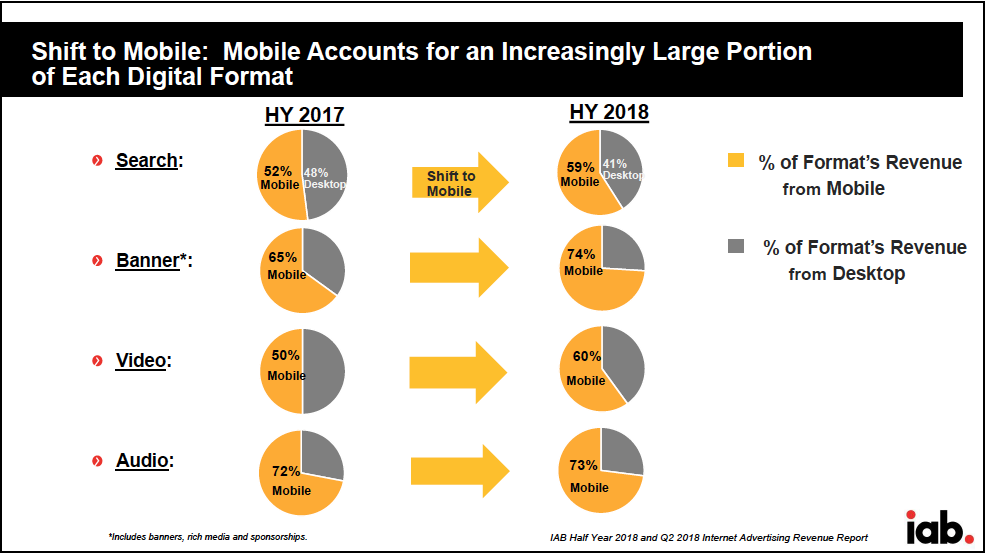
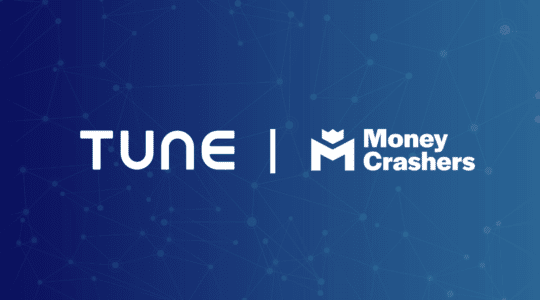
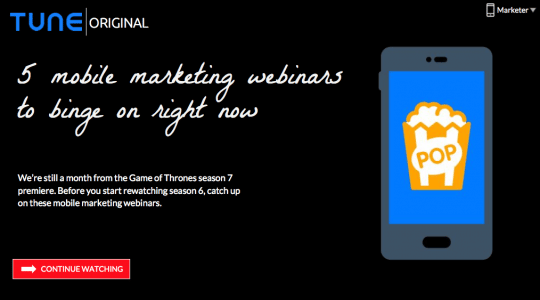
Leave a Reply
You must be logged in to post a comment.